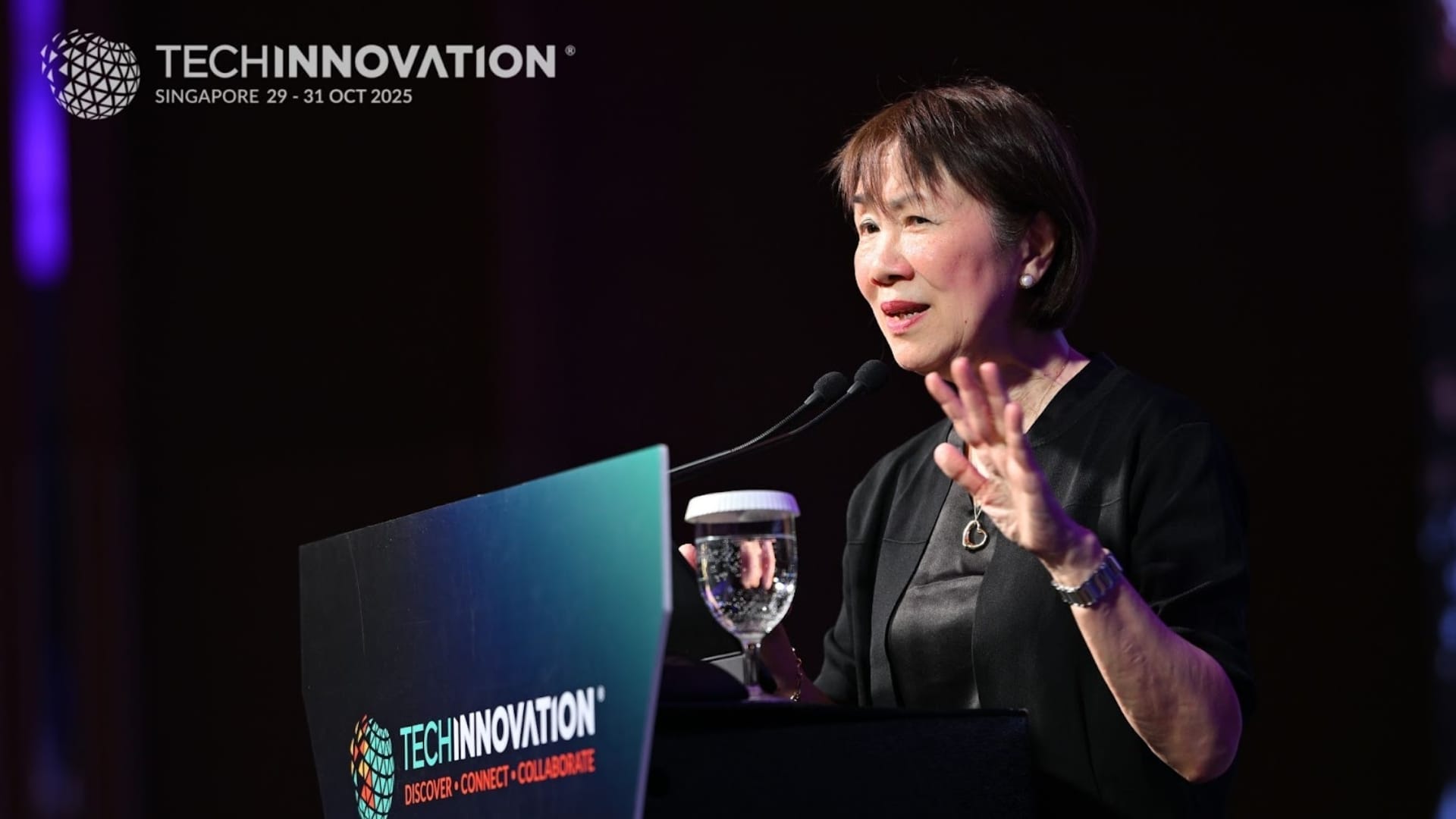TechInnovation 2025 highlights how standards and partnerships drive enterprise growth
Day 2 of TechInnovation 2025 highlighted how standards, collaboration, and cross-border partnerships enable trust and enterprise growth.

TechInnovation 2025, organised by IPI Singapore, entered its second day at the Sands Expo & Convention Centre with discussions centred on how standards, collaboration, and cross-border partnerships are propelling innovation and business growth. The event gathered leaders from public and private sectors to explore how enterprises can build trust, competitiveness, and global partnerships through innovation.
Building trust through standards
In her keynote address, Choy Sauw Kook, Director-General of Quality and Excellence at Enterprise Singapore, highlighted that standards are more than compliance tools. She described them as strategic enablers that help businesses build trust, reduce risk, and create opportunities for growth. Choy encouraged enterprises to adopt standards aligned with their goals, engage their ecosystems, and leverage certifications to gain a competitive advantage. She added that standards provide a shared language for businesses worldwide, allowing both SMEs and large corporates to scale confidently and enter new markets with credibility.
A panel discussion on “Unlocking Growth – How Standards Foster Trust and Success” further explored how well-defined standards can support innovation. The session featured Tan Yee Teck, Executive Director of Quality and Excellence at Enterprise Singapore; April Chin, Co-CEO of Resaro; and Dr Lim Yujing, CEO and CTO of Osteopore. The discussion was moderated by Elvin Too, Founder and Director of LeadWorks. Tan spoke about the role of standards in strengthening national quality infrastructure, while Dr Lim discussed how they ensure safety and reliability in the medical device industry. Chin added that with the rise of artificial intelligence, clear and robust standards are increasingly important to ensure accountability. The panellists agreed that collaboration between industries, regulators, and innovators is essential to strengthen trust and competitiveness.
Expanding into new markets
The panel on “Cracking New Markets – Pitfalls & Proven Strategies” featured Chok Yean Hung, Innovation Advisor at IPI Singapore; Alan Lai, CEO of ProfilePrint; Patrick Lim, CEO of ACE.SG; and Samantha Teo, Executive Director of the International Business Division at the Singapore Business Federation. The session provided practical insights for companies seeking to expand internationally.
The speakers emphasised that successful internationalisation goes beyond strong business plans. They urged entrepreneurs to validate opportunities early, work closely with local agencies, and build trust through a deep understanding of cultural nuances. The discussion also noted that sustainable overseas growth requires time, patience, and trusted partnerships built through meaningful engagement with local markets.
Alan Lai of ProfilePrint summed up the challenge of global expansion by saying, “The biggest barrier to internationalisation, in my opinion, is whether founders are willing to commit to spend years, or at least, spending more time in the targeted market to understand and deepen connections. When you do that, issues around regulation, culture, or funding become manageable. Once you and your team truly connect with people there, it’s no longer an international market; it becomes your local market.”
Collaboration and open innovation
Kotaro Matsuo, General Manager of Business Development at Panasonic R&D Center Singapore, delivered a keynote on the company’s open innovation strategy. He described how Panasonic’s collaboration with IPI Singapore has led to over 40 technologies being shared on IPI’s Innovation Marketplace, resulting in more than 100 business engagements and 13 ongoing projects. Matsuo also introduced the Japanese Corporates Technology Innovation (JCTI) Launchpad, developed jointly by IPI Singapore, Panasonic, the Japan External Trade Organisation (JETRO), and N9. The initiative continues to grow with new members such as Murata and Nitto, showcasing how TechInnovation helps accelerate technology adoption and cross-border cooperation.
KILSA Global, in partnership with the Seoul Business Agency’s Seoul Startup Hub, also showcased ten South Korean startups presenting innovations in digital health, personal care, sustainability, and smart city solutions. The showcase reflected how collaboration between Singapore and South Korea is enabling startups to access new markets and bring advanced technologies to the region.
Choy Sauw Kook captured the spirit of the event in her remarks, stating, “Together, we have the expertise, ambition, and vision to not just compete in the global economy, but to define it.”
TechInnovation 2025 continues to serve as a key platform for connecting innovators, industry leaders, and policymakers to exchange ideas, explore partnerships, and drive sustainable growth across sectors.
















